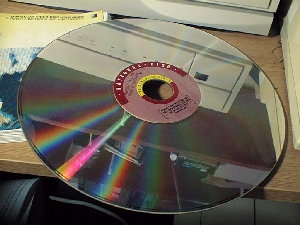| Title: |
The BBC Domesday Book Project and its Legacy - a special CCS seminar |
| Speakers: |
George Auckland, Peter Armstrong, Andy Finney, and David Holdsworth |
| Date: |
14th May 2009 |
| Time: |
14.00 - Room open earlier for the CCS AGM (from 14.00 to 14.30) |
| Location: |
Fellows Library of the Science Museum, Exhibition Road, London, SW7 2DD |
|
 |
About the Seminar
Last year the Computer Conservation Society held a successful and well attended seminar on the BBC Micro to mark the 25th anniversary of its launch. To follow up this year we are organising a seminar on one of the BBC Micro pioneering applications - the BBC Domesday Book. This special event will bring together many of the people who took part in the original project, and will explore its legacy in the world of media applications today.
George Auckland will introduce the Domesday project, and chair the seminar. George is Head of Learning Innovation at the BBC. His introduction will outline the legacy of the project for the BBC, and for the wider world.
The talk outlines and lead speakers are:
Domesday: Multimedia before its time - Peter Armstrong
Peter will explore the origins of the project and present the story of how the 1980s Domesday project prefigured so many of today's new media tools - from multimedia geo-tagging to Google street views, and from user-generated content to Wikipedia. More than a million people became involved voluntarily in creating content. And what can be learnt from that for today´s world?
Peter conceived the Domesday Project and was its Director from 1984 to 1986. He went on to found BBC Interactive.
Technical Considerations for a modern Domesday - Andy Finney
Andy Finney helped to specify the technical aspects of the BBC Domesday Project and produced much of the audio-visual content - including Domesday's very own ancestor of Google Street View! He will describe why the combination of BBC Micro and LaserVision was an appropriate system to use and how data came to be added to the videodisc format. The project started in 1984 and the technical choices were made before what became ubiquitous technologies and formats (such as CD-ROM and JPEGs) were available.
Andy will outline the production techniques used and how these influenced some aspects of the 21st century preservation activity.
Before the Domesday Project, Andy was a BBC radio and TV producer and was a founding producer at BBC Video, where he specialised in videodisc production. Since Domesday he has remained in interactive media and is currently concentrating on the digital TV sector.
Domesday - aggressive rescue and the wisdom of hindsight - David Holdsworth
The BBC Domesday data is a remarkable but almost inaccessible digital resource, held on special video discs.
David will describe the digital preservation activity at Leeds University done recently in collaboration with colleagues at the University of Michigan in a project known as CAMiLEON (Creative Archiving at Michigan and Leeds, Emulating the Old on the New).
The BBC Domesday discs have been used as an example of "aggressive rescue" by use of emulation. The experience from that leads on to considering wider topics for the long-term preservation of our digital heritage - both the challenges and the opportunities.
The talk will include a demonstration of the software and the results.
David has specialist experience in the area of software conservation, preserving for posterity software from the past, in such a way that it can be seen in source form, and also executed. His IT career was at Leeds University where his work straddled the IT services and the academic department.
The talks will be followed by discussion, chaired by David Hartley. We expect this to be a full afternoon´s event to 5pm.
Background
The CAMiLEON website has details of the BBC Domesday project, and of recent work to rescue and to preserve this remarkable digital resource.
For more about the BBC Domesday book and its use click here to see the Wikipedia entry.
Click  to see a podcast of the event
to see a podcast of the event
|
|
|
|
